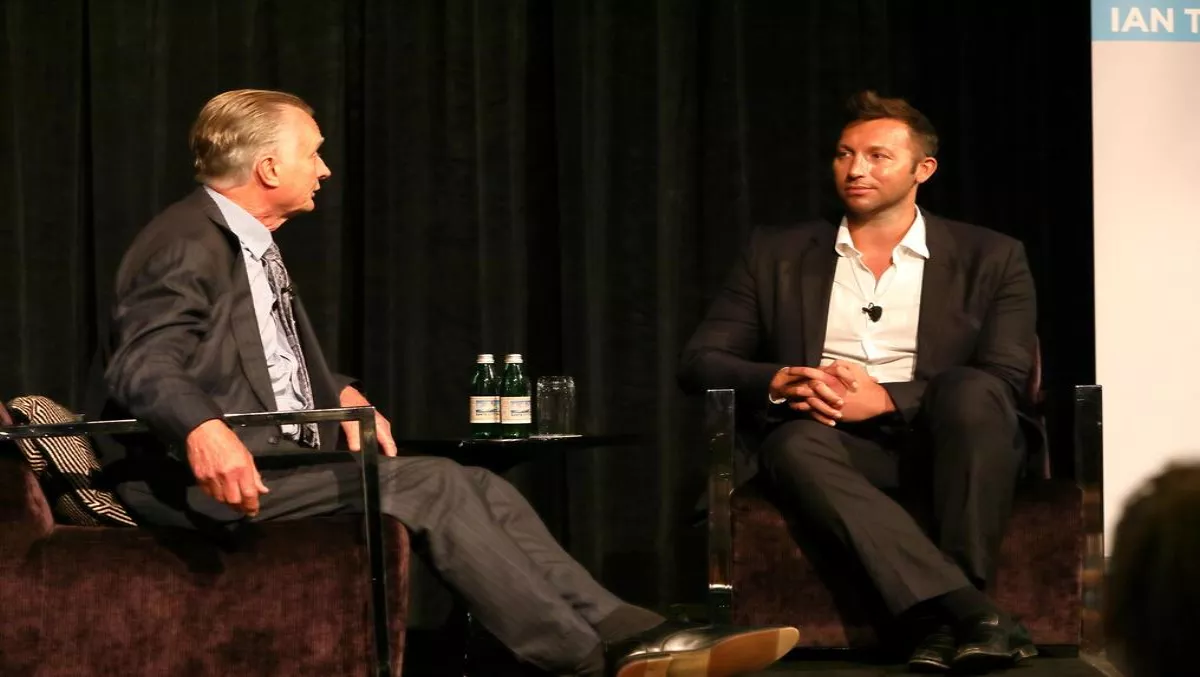
Ian Thorpe talks mental health with construction tech company Procore
Procore, a construction management software company, has brought together some of Australia's leading figures in construction to discuss mental health in the industry.
Among the event's speakers was Ian Thorpe, Australia's most successful Olympian who spoke about his own experiences with depression.
The event took place in Sydney last week in partnership with CBUS, HammerTech, Voyage Control, MATES in Construction, The Master Builders Association of NSW, NAWIC and The NSW Department of Industry.
Milton Walters, VP of Marketing at Procore comments, "All the research points to a hard truth that those working in construction are disproportionately affected by mental health issues.
"As an industry, we need to learn how to be open with each other and get better at recognising the signs that someone is in trouble."
"We recognise that collaboration will be crucial to generate momentum around pulling down stereotypes, increasing awareness and empowering those working in the industry to support each other.
At the event, Thorpe said he knew that it would help people to be public about something like this, but he didn't realise the toll it would take on him.

"I wasn't prepared to then talk about being depressed with people. One way that is guaranteed to make you depressed is talking about being depressed. So now when I do it, I have to know that I am well enough to do it, that it is the right time to do it.
"What's different from then to where I am now is that I didn't realise that I could actually be well. I thought I could only get to content and that would be good enough. I didn't realise that if you really work on it each day, there's a possibility to really live a fulfilling and joyous life.
Thorpe continues, "When you're caught up in those moments of depression, you don't think clearly and there isn't clarity in mind.
"I was trying to understand what was going on my life. I also felt this tremendous amount of guilt. I had so much to be thankful for. I had a great life. There were pressures, but most of what I had was incredible and I'd accomplished a lot but I didn't feel the accomplishment.
Thorpe says that when dealing with depression he got good at pushing it down, so that people wouldn't see it.
"I'd force myself to front up to do things and push myself through periods, and then struggle in the background where people wouldn't see it.
Moreover, Thorpe goes on to give advice for coping with depression.
"If you put everything into one area of your life, you're not going to value yourself as a human being as much in the other areas of your life. I think that's what a lot of us do when it comes to work.
"It's about having that balance between your work, family, and passions. It doesn't mean you spend equal amounts of time in them, but it's about being aware that there's a lot to making you who you are and to value yourself in each area of your life.
"It's a responsibility of both parties. I look at myself and in my darkest times I withdraw myself. It's an obvious warning sign. But if you're not letting anyone in, they can't help. It needs to happen from both sides.
"Every time I'm faced with depression; I have more tools to deal with it. People say you have to fake it until you make it. Do all the things that will keep you active. For me some of the time, I've learnt to allow myself a day at home when I'm down and not feeling great.
"I set a timeframe on it and know that after this I'm going to seek help and ask a friend to take me to dinner, but I'll give myself 24 hours. But once I've taken control over it, usually after the 24 hours is up I don't need my friends to pick me up.
"I think collectively when we remove some of the dignity that is in people's lives and in their roles, we undermine the whole group. This doesn't just happen in schools, it happens in the workplace, in politics and even in the media.
"If we look at the TV shows we watch, we actually go for the character who is usually the biggest and the loudest. And unfortunately, that character has now come into the position of being the most powerful person in the world. Where are we going with all of this?
"I think we have disconnected. But when we want to reconnect, most of the people in our work environments really want to embrace us. We usually have similar values of what is important, and what we want to see for our society and how we will progress it.
Thorpe concludes, "I think this is why we see business lead on these issues.


